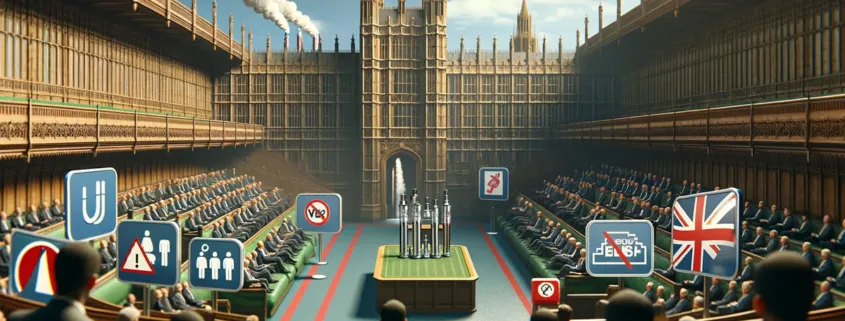UK Government to Propose First-Ever Vape Tax in March Budget
The UK government is expected to announce a new tax on vaping products when it unveils the national budget on March 6th. This would mark the first time vaping has been taxed since e-cigarettes arrived in the UK market nearly 15 years ago.
Why A Vape Tax Now?
Imposing a vape tax aims to discourage youth vaping while also recouping tax revenue lost from eliminating other taxes, according to inside sources.
The tax proposal results from a public consultation conducted by the government from June to December 2022. The consultation explored various policy options like vape taxes, flavor restrictions, marketing regulations, etc. to meet the government’s goal of creating a “smokefree generation.”
What Could The Tax Look Like?
Details remain unclear, but sources suggest the vape tax could increase prices on vaping products by at least 25%.
Most countries with vape taxes impose them based on e-liquid volume (per mL) or a percentage of the wholesale price. The tax rate and structure will likely be announced alongside the budget in March.
Please read: The vaping tax in Canada
Does A Vape Tax Align With UK Vaping Policy?
For nearly a decade, the UK has embraced vaping as a smoking cessation tool. Progressive policies helped spur the growth of the UK vaping market.
However, the political winds have shifted, with the current Conservative government taking a more restrictive stance towards vaping and all nicotine products.
Critics argue a vape tax contradicts established public health policy supporting vaping as a safer alternative to smoking. They suggest it could undermine the gains made in reducing smoking rates.
What Does Research Say About Vape Taxes?
Numerous studies have found that raising taxes on vaping products has unintended public health consequences:
- Higher taxes make e-cigs more expensive versus traditional cigarettes, reducing switching incentives.
- Reduced vaping rates correlate to increased smoking rates, especially among youth and young adults.
- Places with higher vape taxes see slower declines in smoking compared to areas without vape taxes.
In other words, taxing vapes undermines their price advantage over cigarettes, leading more people to smoke instead of vape.
Could Parliament Block The Tax?
The vape tax requires approval from the UK Parliament. Some Conservative MPs have already voiced opposition and could vote against it.
However, the opposition Labour Party will likely provide the votes needed to pass the tax. Labour has embraced the ant-vaping stance of Conservative leadership.
Passage of the tax ultimately comes down to how strongly Conservatives oppose the policy proposed by their own party leader.
Could This Lead To Further Vaping Restrictions?
If approved, a vape tax may open the door to additional limitations on vaping in the UK market. Other proposals from the consultation included:
- Banning disposable vapes
- Prohibiting certain e-liquid flavors
- Limiting marketing and packaging designs
Imposing a vape tax signals a philosophical shift against vaping by the government. Additional restrictive policies could follow.
Conclusion
The UK’s expected vape tax represents a concerning development for access to safer nicotine products. If implemented, public health experts predict adverse impacts on smoking rates. With vaping policy going backwards, the march towards a genuinely smokefree UK could slow substantially.
- Vaping Laws in Pennsylvania: A Comprehensive Guide for 2025 - July 6, 2025
- Is Vaping While Driving Illegal in Oregon? (2025 Guide) - July 4, 2025
- Vaping Laws in Oregon: What You Need to Know in 2025 - July 4, 2025









